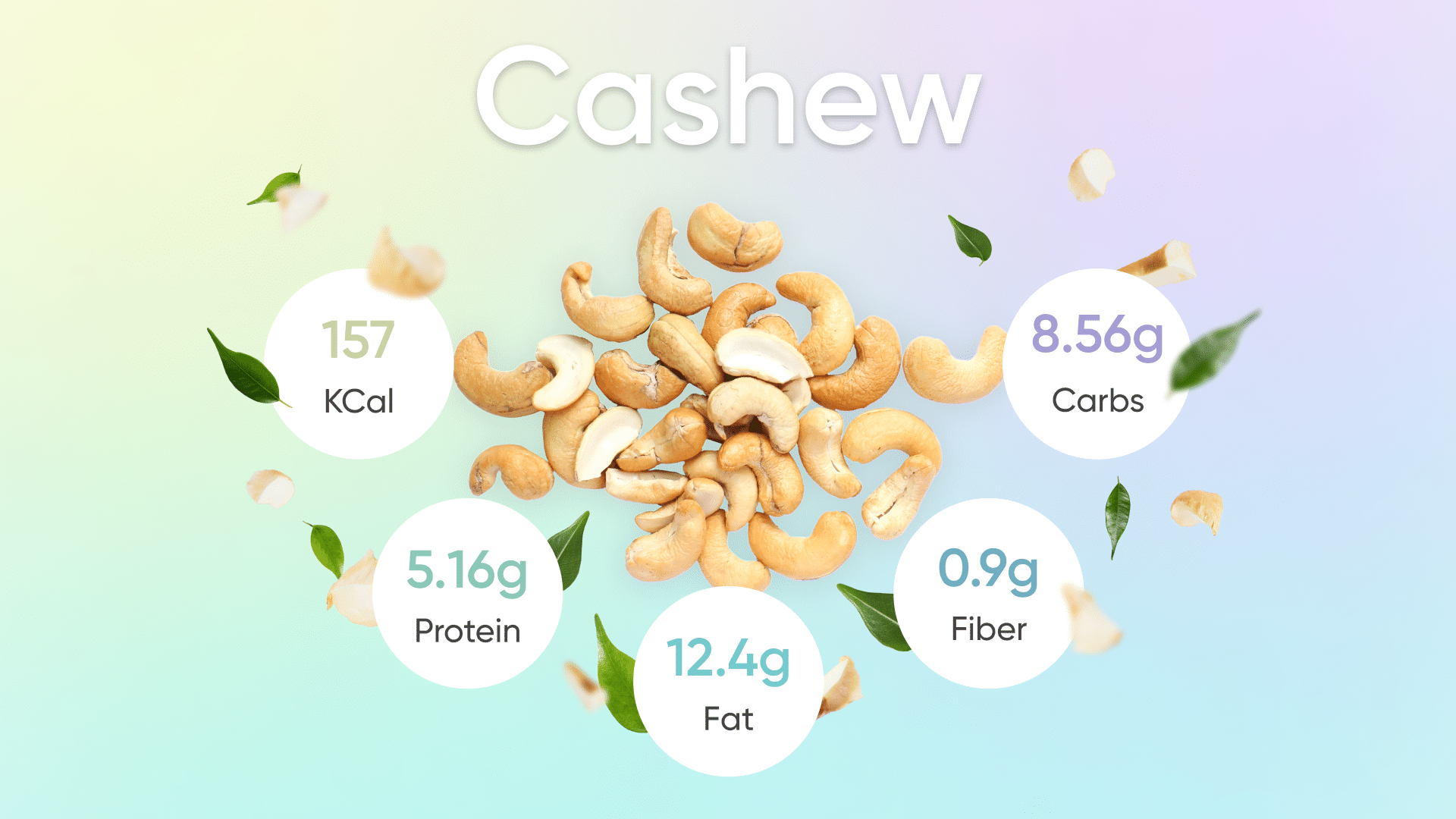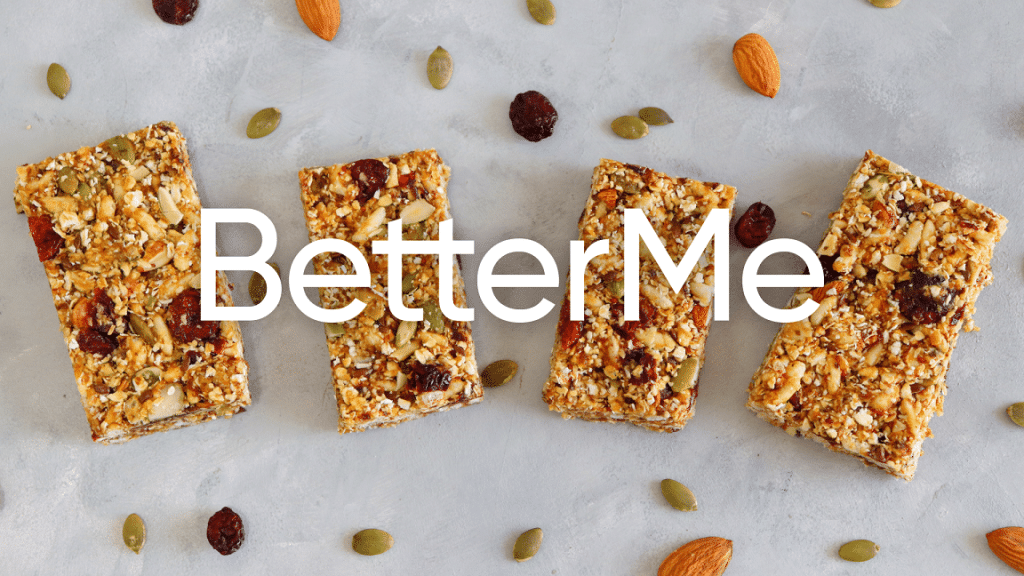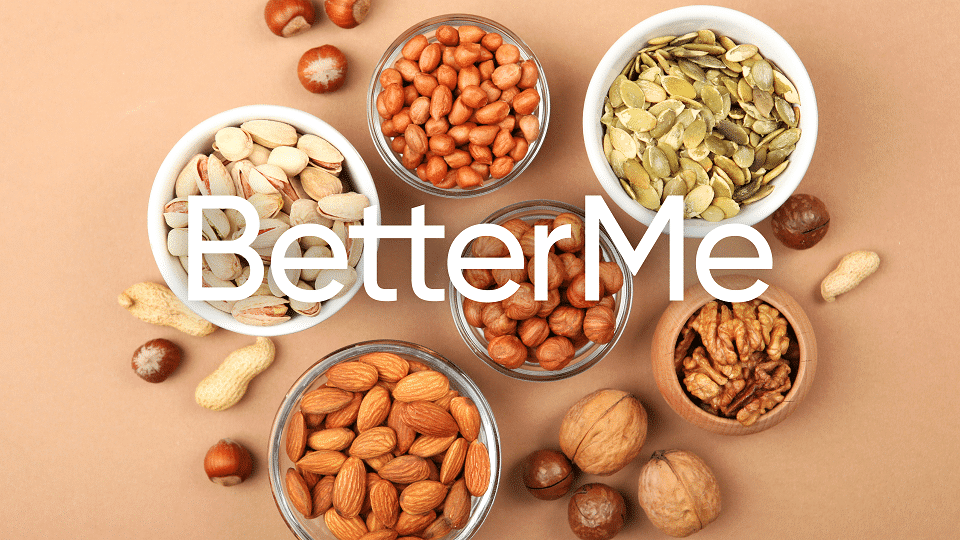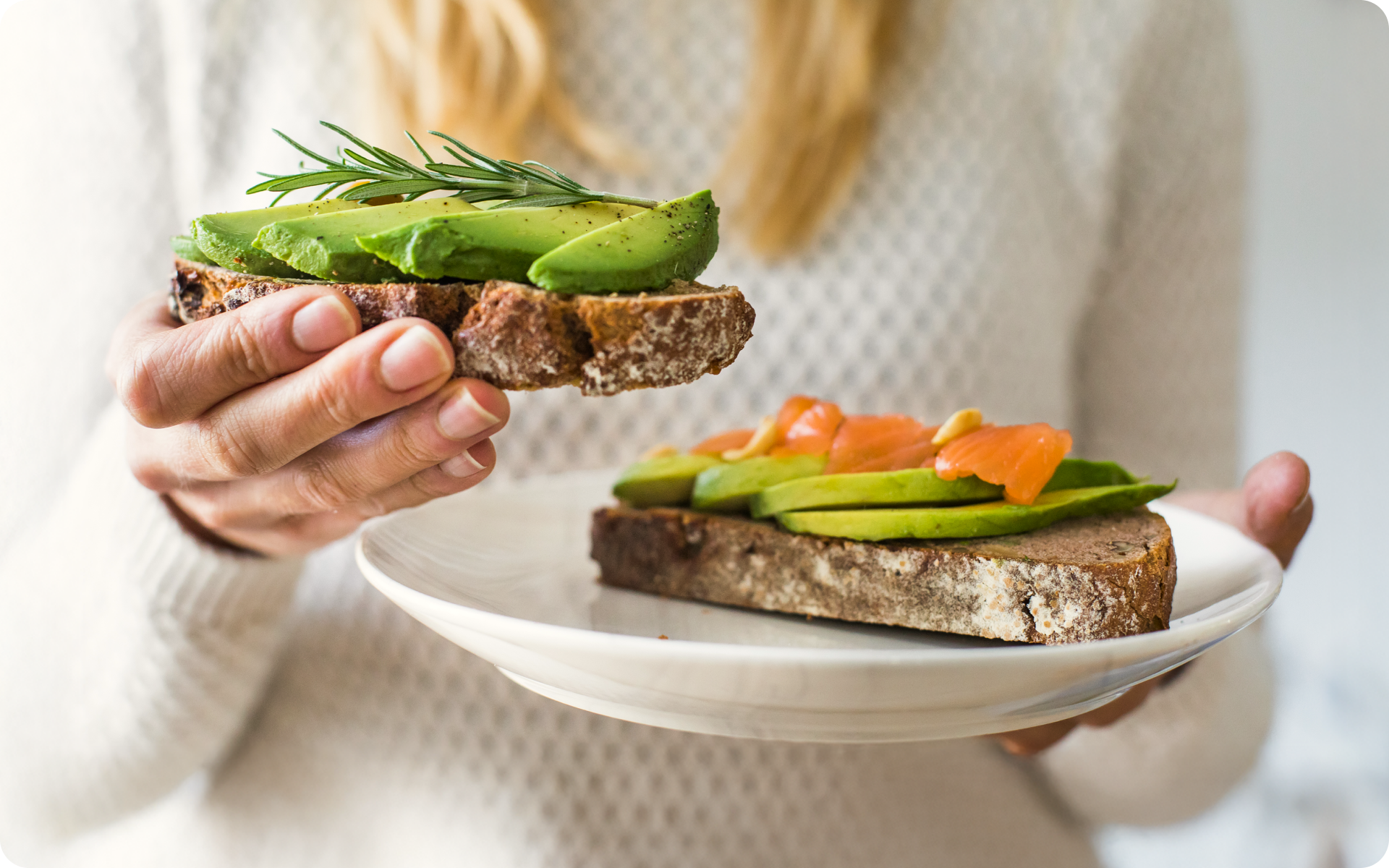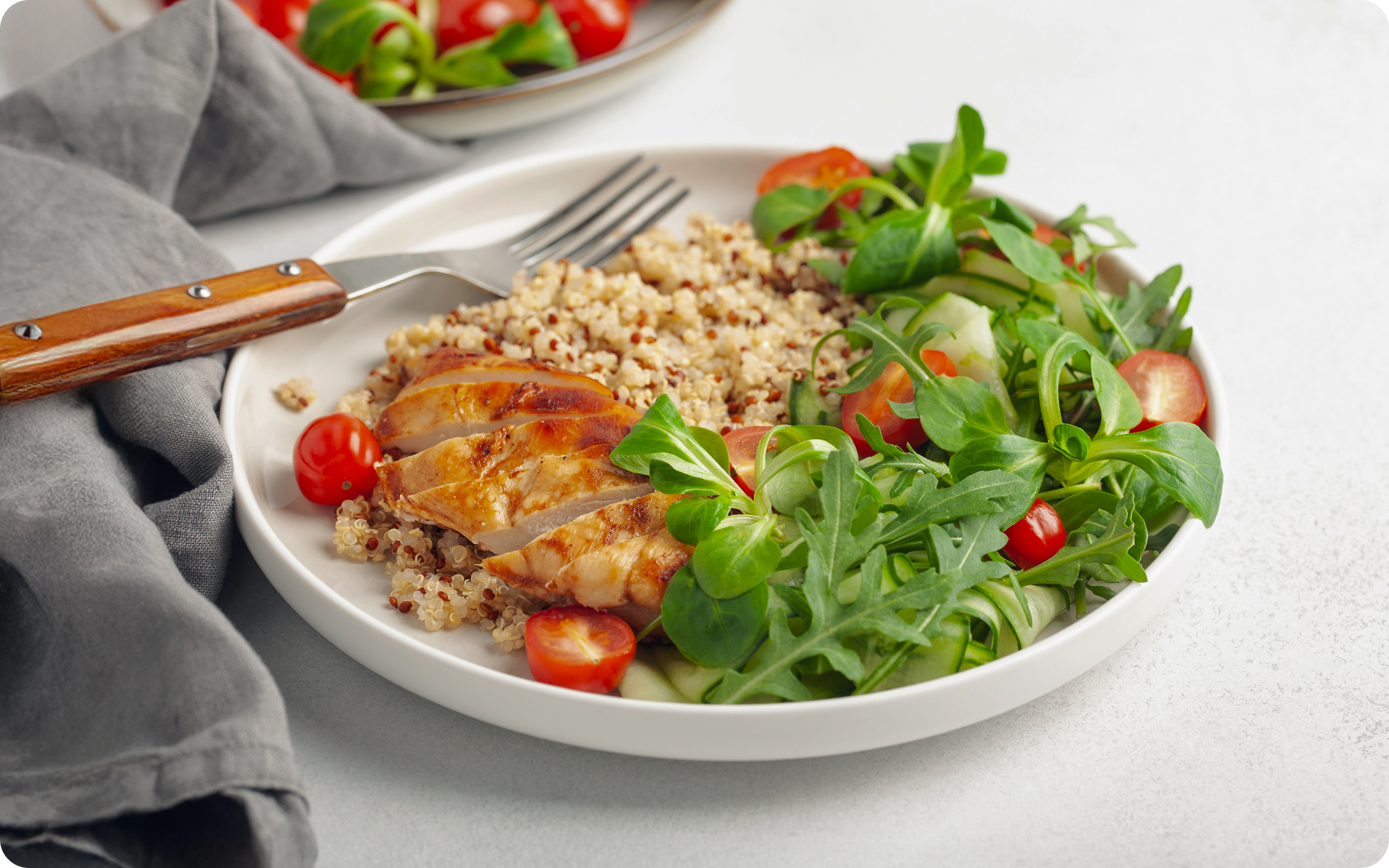Nuts have lots of fat, so many people assume they are fattening. In reality, most nuts, including cashews, are not fattening. They may even help you lose weight! Cashews are packed with nutrients that can help to regulate your metabolism and curb hunger. We will discuss how to make the most of this delicious snack for optimal health and weight management.
Nutrition Facts
Cashews are not fattening. They are calorie-dense, but their healthful nutrients make them a far better choice compared to many other snack foods.
A 1 oz serving of cashews contains the following nutrients (7):
- 157 calories
- 12.4g fat (1 g saturated fat)
- 8.56 g carbohydrate
- 0.936 g fiber
- 2 g sugar
- 5.16 g protein
The same size serving of pretzels contains only 110 calories but lacks cashew’s high nutrient content (11). You can fit more healthy ingredients into your daily menu by choosing nuts over junk food snacks that offer little in terms of nutrition in return for the many extra calories they contain.
Read More: Almonds For Weight Loss: What Does Science Say?
Health Benefits Of Cashews
Cashews are known for being good sources of essential nutrients.
Some of their health benefits include:
Lower Cholesterol Levels
Cashews are also a source of several healthy fats, including oleic acid, stearic acid, and palmitoleic acid. These fats help lower cholesterol in your body. The fat in cashews is mostly unsaturated, which helps reduce LDL cholesterol (8). The nuts also contain high amounts of magnesium and phosphorus, which can help lower your blood pressure if you have hypertension or prehypertension (6).
Healthy Heart
Cashews are good for your heart. Their antioxidants fight off harmful free radicals that can cause clogged arteries and lead to an increased risk of a heart attack. Magnesium, potassium, and fiber help reduce blood pressure, which can also protect you from having a heart attack or stroke (8).
BetterMe app is a foolproof way to go from zero to a weight loss hero in a safe and sustainable way! What are you waiting for? Start transforming your body now!
Skin Health
Cashews are rich in Vitamin E, which is excellent for your skin and hair health. It is also good for your nails. Vitamin E helps protect the cells from oxidative damage, which can slow down skin aging. The antioxidants found in cashews are also very beneficial for healthy skin (13).
Management Of Type 2 Diabetes
Cashews contain a good deal of fiber, which slows down the digestion process and makes you feel full longer. This helps keep your blood sugar levels more steady. This is good news for people with type 2 diabetes because they tend to have a hard time controlling their blood sugar levels due to insulin resistance (9).
Risks Of Eating Cashews
There are several reasons why you may want to moderate your consumption of these nuts. The side effects of cashew nut consumption include:
High-Calorie Intake
An ounce of nuts is a relatively small amount; however, it is not advisable to sit down and eat a full cup of salted cashews or consume handful after handful. Eating a large number of nuts can result in you consuming far too many calories and fat grams; these high amounts can contribute to weight gain over time, especially if you add cashews to another fattening food such as dessert.
Read More: Benefits Of Peanuts For Weight Loss
Allergies
If you are allergic to tree nuts, even a small amount of cashews can cause some side effects. You may experience any of these symptoms (12):
- Itchy skin
- Raised area on the skin
- Watery eyes
- Difficulty breathing and chest tightness
- Sneezing and coughing
- Cramps, diarrhea, vomiting, or nausea
If you experience any of these symptoms after consuming nuts, seek medical attention as soon as possible. A life-threatening allergic reaction known as anaphylaxis can occur from nuts.
Intense sweat sessions, working weight loss tips, lip-smacking recipes come in one package with the BetterMe app. And all of it is at your fingertips, start transforming your life now!
Phytate Content
Phytates are naturally occurring compounds present in seeds and nuts. Phytates bind to certain nutrients such as calcium, iron, zinc, and magnesium; they can interfere with the absorption of these important minerals that are vital for your health. Nuts tend to be high in phytates (3).
If you want to eat cashews, try to eat them raw or roasted without salt. Toasting nuts will reduce the phytic acid content, but it will also cause a loss of nutrients and flavor.
If you choose to roast your cashews, be sure not to burn them; burned nuts contain higher amounts of acrylamides, which are carcinogenic (cancer-causing) chemicals that are formed when food is cooked.
The Bottom Line
Cashews are not fattening; they possess many health benefits, including regulating and speeding up your metabolism and curbing hunger pangs. They also provide lots of nutrients such as magnesium, which is involved in hundreds of metabolic activities in your body and helps turn food into fuel. However, you should still watch your portion size to avoid consuming too many calories. When buying cashews, always remember to look for raw or dry roasted and avoid those that have too many additives. Finally, remember how to properly store them as well to better preserve their freshness and nutrients.
DISCLAIMER:
This article is intended for general informational purposes only and does not address individual circumstances. It is not a substitute for professional advice or help and should not be relied on to make decisions of any kind. Any action you take upon the information presented in this article is strictly at your own risk and responsibility!
SOURCES:
- Cashew Milk: Are There Health Benefits? (2020, webmd.gov)
- Evaluation of the content and bioaccessibility of iron, zinc, calcium from groats, rice leguminous grains and nuts (2011, nih.gov)
- Foods High in Phytic Acid (2020, webmd.com)
- Health Benefits of Almond Butter (2020, webmd.com)
- Health Benefits of Cinnamon (2015, umaryland.edu)
- Magnesium Intake is Inversely Associated with Coronary Artery Calcification (2013, nih.gov)
- Nuts, cashew nuts, raw (2019, usda.gov)
- Nuts and coronary heart disease: an epidemiological perspective (2006, pubmed.gov)
- Nuts and Human Health Outcomes: A Systematic Review (2017, nih.gov)
- Signs You’re Eating Too Much Salt (2021, webmd.gov)
- Soft Pretzels (2019, usda.gov)
- Systematic review on cashew nut allergy (2014, pubmed.gov)
- Vitamin E (2021, nih.gov)
